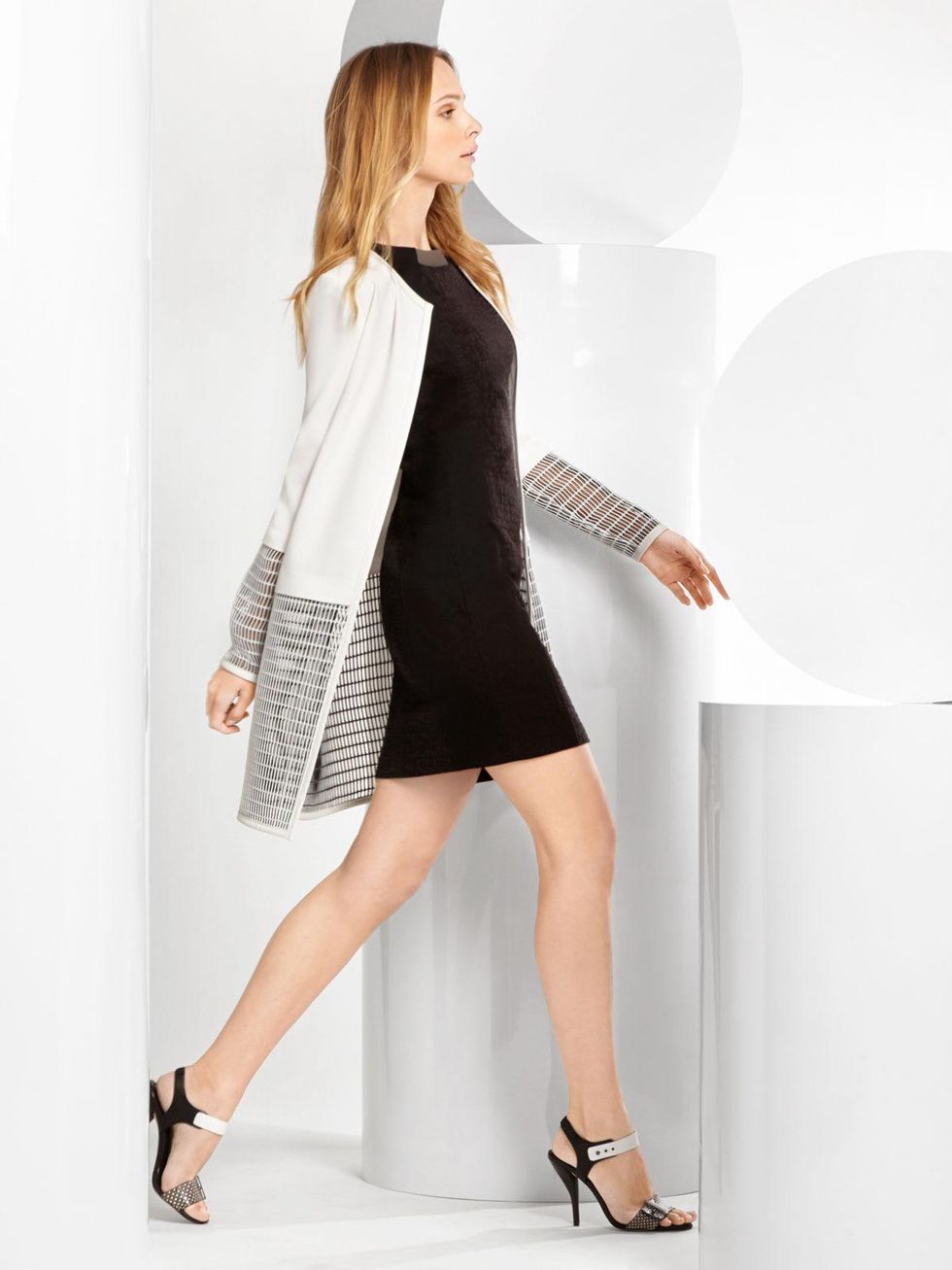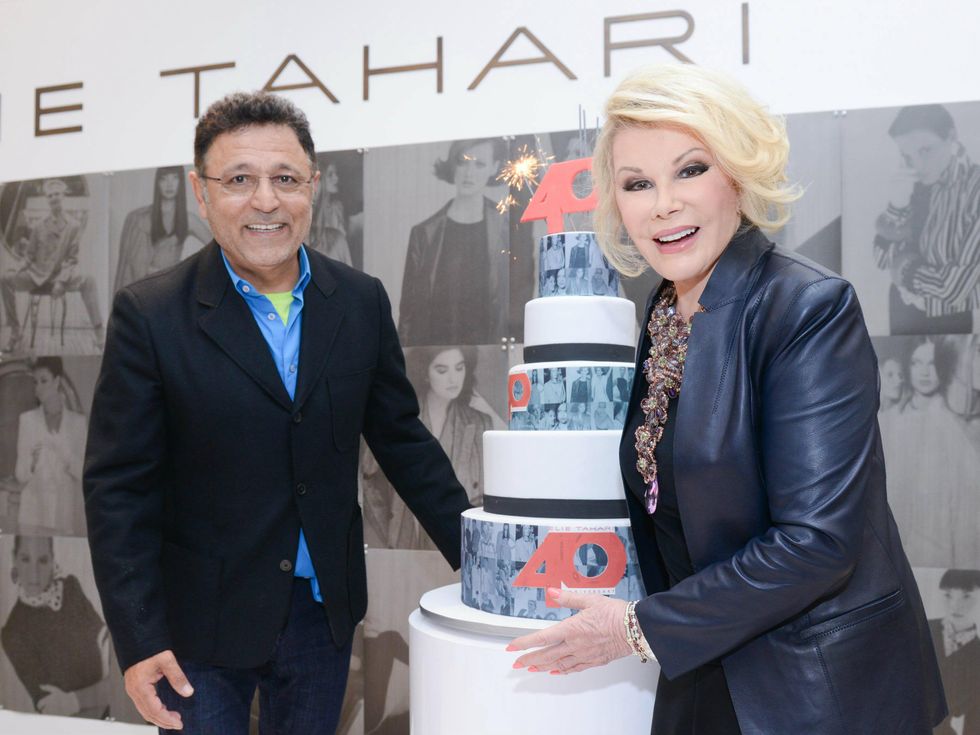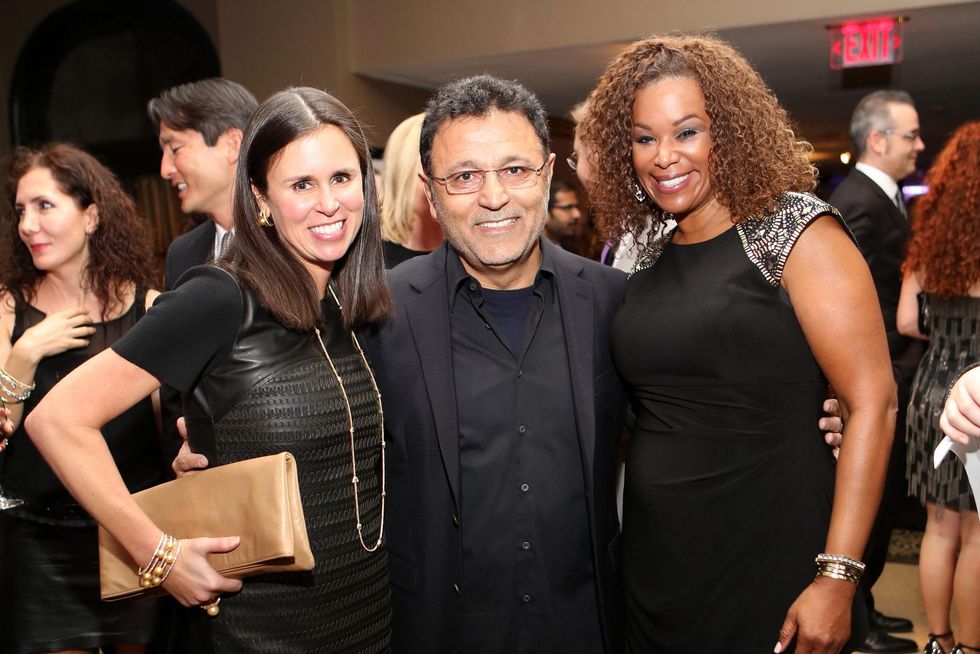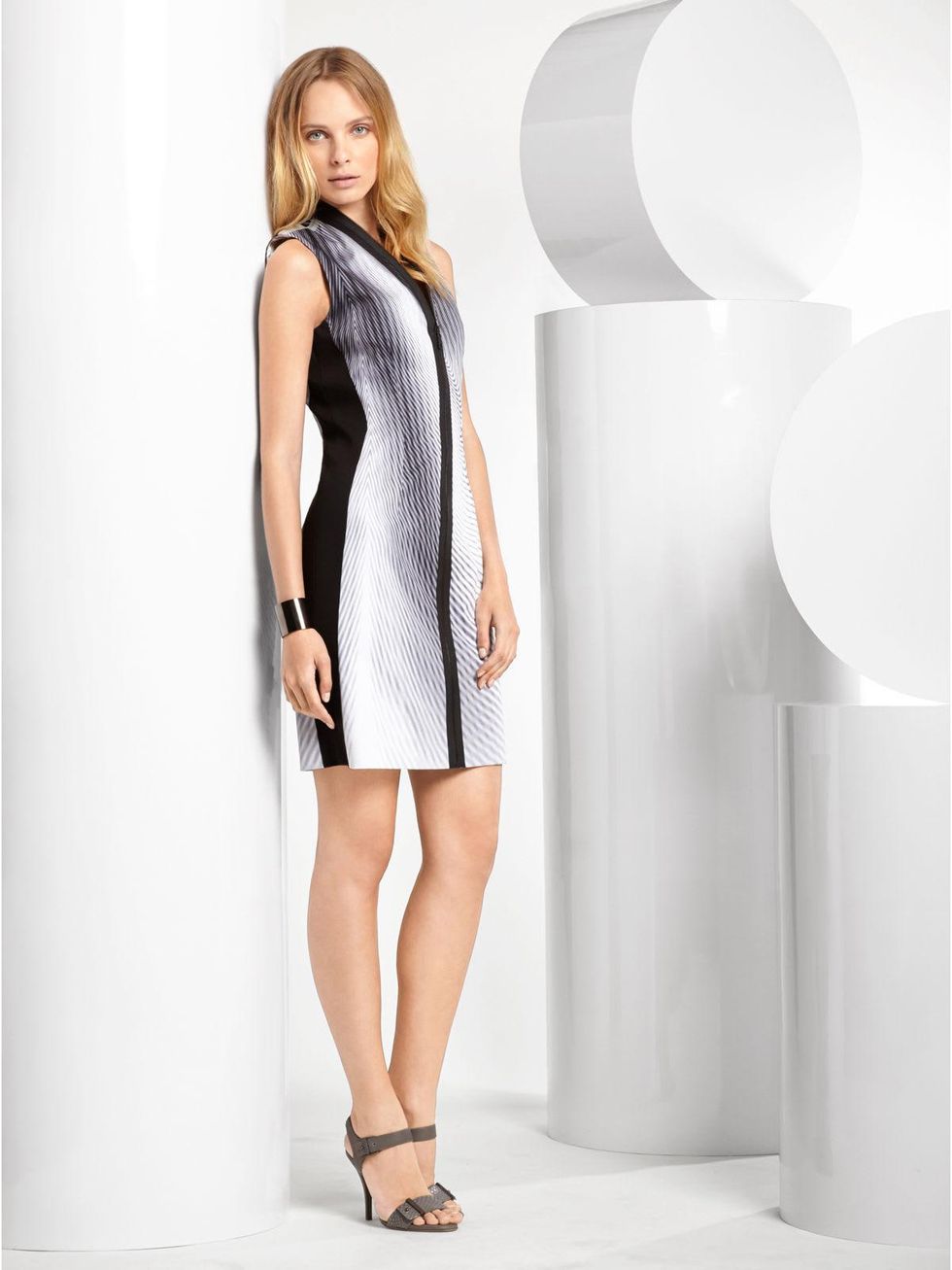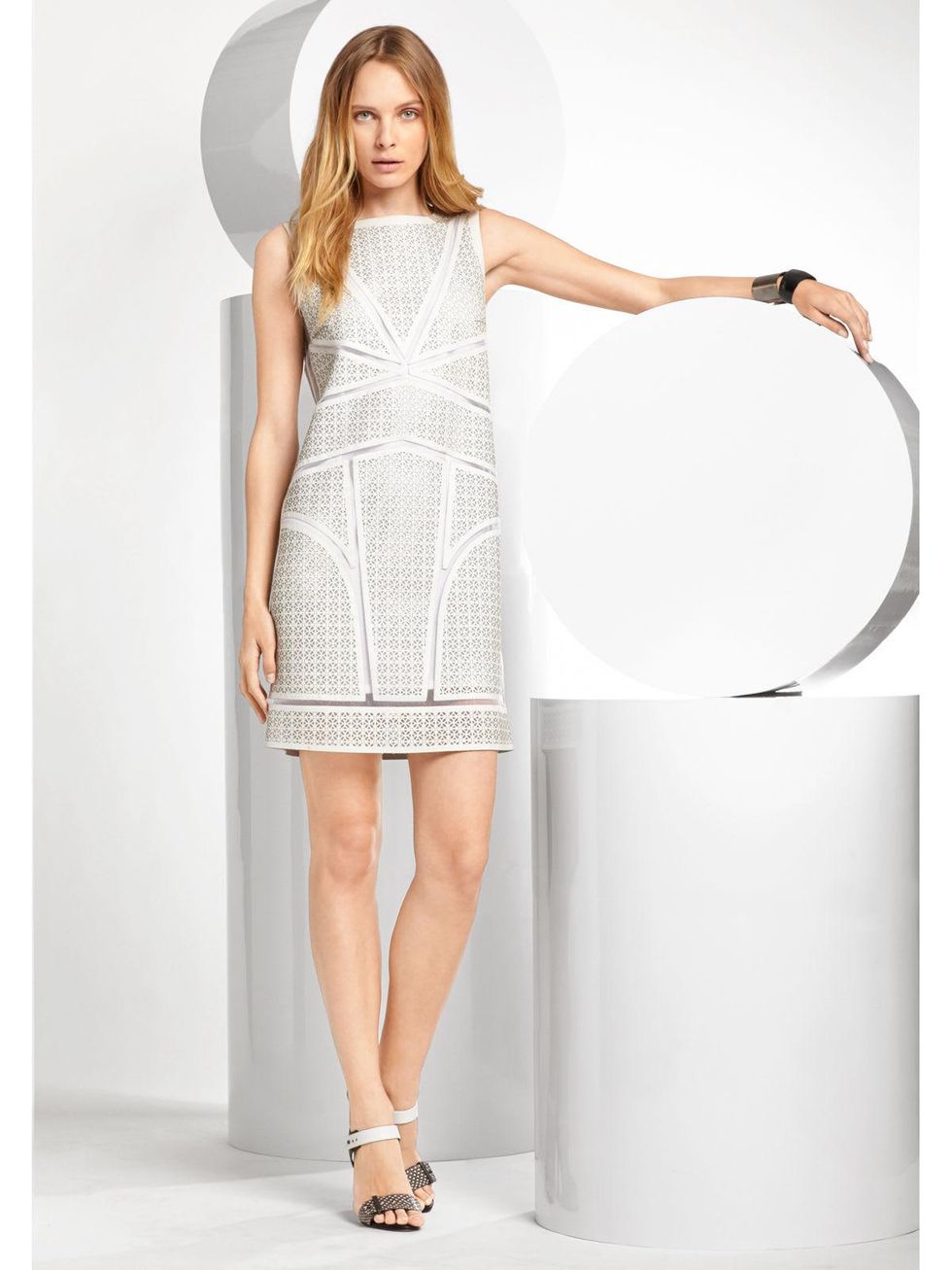Designer Interview
Fashion and the meaning of life: Elie Tahari celebrates 40th anniversary with a new attitude
Elie Tahari has a lot to celebrate. The designer, who landed in New York from Israel with less than $50 in his pocket in 1971, has built a $500 million apparel empire that began with disco party dresses and expanded into office-friendly designs for men and women. This year, Tahari marked his 40th anniversary in the fashion business with a lot of firsts, including his first visit to Houston, where he recently was the featured designer at Catwalk for a Cure.
Tahari, whose visit was arranged by Saks Fifth Avenue, delighted the audience with a runway show that featured looks from his spring collection as well as well as a capsule collection of some of his greatest hits, including a cage mesh swing coat, jumpsuit, a laser cut shift dress, and signature leather pieces. Each piece in the updated capsule collection is named after an iconic New York landmark.
"I've learned that every time you judge somebody by color, by sex, by shape, by religion, you block the blessing, you close the gates of the light. And that gets you into chaos and trouble."
Perhaps because he has reached such a fashion milestone or his deep interest in Kabbalah, the study of Jewish mysticism which he took up in earnest close to two years ago, Tahari was in a reflective mood when he sat down with CultureMap. At times, the talk veered from fashion into the meaning of life.
CultureMap: How has fashion changed in the 40 years since you have been designing?
Elie Tahari: A lot. When I started there were clear trends that every woman had an eye on. Today there are trends, but every woman dresses the way she understands it and puts it together in a different, creative way. Women are free to do and dress without trends restrictions that were 40 years ago.
CM: Is that easier or harder for a designer?
ET: For a designer, you've got to be good. You can't just figure out a trend and you are in business.
CM: How have you changed as a person and as a designer?
ET: I have changed a lot. I have changed completely. I have a saying now, which is a "passion for fashion" and then "fashion is compassion." When I went into business it was all about me, me, me. And as we built the company, it's all about ego, it's all about money and sex and Hollywood. And then you're not happy because there is no compassion.
I'm a student at the Kabbalah Center in New York and I've learned that every time you judge somebody by color, by sex, by shape, by religion, you block the blessing, you close the gates of the light. The light doesn't come in. And that gets you into chaos and trouble.
I learned more to be humble and maybe keep my ego in check, to realize that I am nothing. Everything I did is because I was blessed with the light.
CM: So Kabbalah has made a difference in the way you look at life?
ET: A big difference. Not that I wasn't searching before I arrived to Kabbalah. But the Kabbalah helps us understand that we need to take responsibility for our destiny. And we're here to share and help others. The moment we think we are here for ourselves, pleasures and all of that, it's a disaster, chaos. We have two eyes, one to see the good in others and the other to see the bad in us. We are here for our correction. When we have challenges, we need to look within ourselves and not blame the next guy.
CM: You are also now taking on the role of CEO of your company.
ET: It's a way of the future. The creative guy has a vision from beginning to end. When you bring people in to run your business without that vision, it doesn't work.
CM: Isn't that too much for one person to do?
ET: It is, but when you have the collective consciousness to achieve something, it happens.
CM: Even after 40 years, you seem energized about the company. You just keep expanding the Tahari brand, with a new eyewear and men's underwear lines slated to be introduced next year.
ET: As the company became very big, I tried the good life. I tried to stay away but it didn't work for me. Either do it right or get out. If you do it right, you have lots of energy. It's not about money or fame, it's about service to the customer. That's what we're here for.
